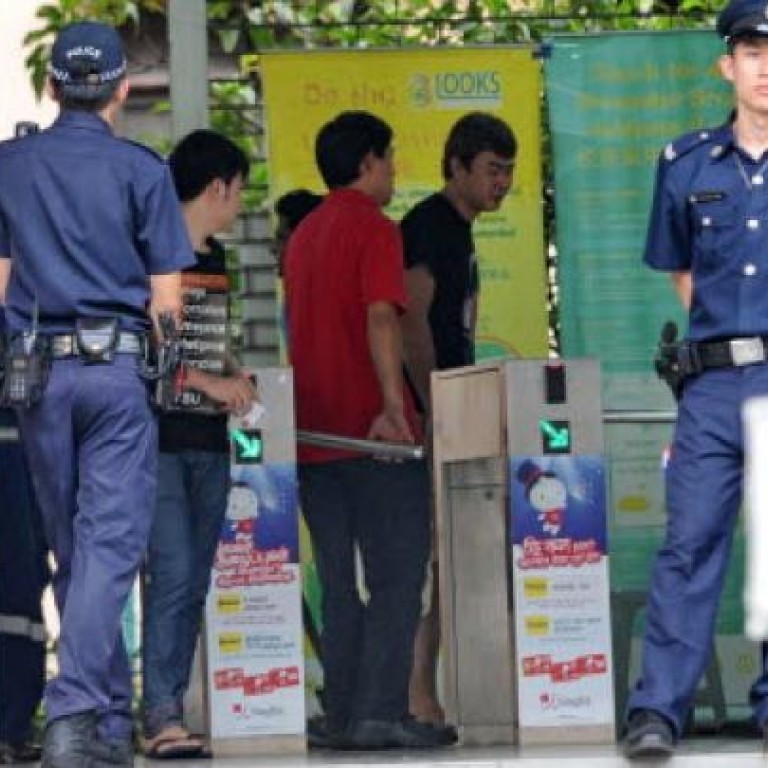
China expresses concern as Singapore charges drivers for strike
China said on Friday it was “very concerned” about the arrest of four of its citizens by Singapore authorities for their role in a labour protest, the island’s first strike since the 1980s.
The Chinese nationals were charged in court on Thursday with instigating SMRT Corporation bus drivers to take part in an illegal strike this week, according to court filings. Police arrested the four after the company said more than 170 drivers from the mainland failed to report for duty on November 26 and 88 halted work on November 27, disrupting some bus services.
“The embassy is very concerned about this,” the Chinese consulate said in a statement on its website, referring to the arrests. The embassy in Singapore is seeking to visit the detained drivers as soon as possible and hopes their rights will be protected, it said.
Singapore moved swiftly to quell the rare public display of labour discord this week, reinforcing a decades-old focus on avoiding what the government calls “adversarial and confrontational” industrial relations. The last legal strike was in 1986, involving the Shipbuilding & Marine Engineering Employees Union and Hydril Pte., and the most recent illegal one concerned airline pilots in 1980.
The four drivers are charged with conspiring to instigate workers employed by SMRT Buses, according to charge sheets filed at the city’s subordinate court yesterday. If convicted, they can be jailed for as long as 12 months, fined as much as S$2,000 (about HK$12,400), or both.
One of the drivers was also charged with inciting the strike with a post in Chinese on Baidu entitled “The insults and humiliations suffered by Singapore Drivers (SMRT)” that asked “where is the dignity of the People’s Republic of China bus drivers,” according to the court document. Baidu owns China’s most popular search engine.
Police were deployed to stand watch as the workers stayed in their dormitories to express unhappiness over pay earlier this week, and Singapore’s Acting Minister for Manpower Tan Chuan-Jin declared their action an illegal strike. Labour protests in Singapore are rare and unions have limited scope for industrial action as the government encourages consultative relations between employers and employees.
“Even as we take a firm position on this, it is important that we remain circumspect and not generalise unfairly,” Tan said on his Facebook page after the arrests. “The many foreign workers here in various sectors also play their part in contributing to our society.”
Strikes in Singapore are illegal for workers in essential services unless their employers are given two weeks’ notice, according to the Manpower Ministry.
While workers cannot “take the law into their own hands,” companies must also look at how they manage and treat their employees, Tan said.
SMRT is Singapore’s biggest subway operator and one of its two main bus companies. The company said the workers who protested this week were unhappy with their salary increments after recent adjustments made by the company.
China’s Ministry of Commerce is “very concerned” about the pay dispute and wants involved parties to “respond to the legitimate demands of Chinese bus drivers for equal pay and treatment,” the nation’s official Xinhua News Agency said yesterday, citing a statement from the ministry.
Trade between Singapore and China grew 6.4 per cent last year to S$101.4 billion, according to the island’s Ministry of Trade and Industry. The two countries signed a free trade agreement in 2008. China sends its officials to Singapore for training and the city state’s Nanyang Technological University has taught more than 12,000 officials from China in its managerial economics and public administration programmes.
The Chinese embassy urged the parties involved to remain calm and work together to resolve the matter, saying it will monitor developments closely.
“The illegal strikes are not acceptable and have undermined the industrial harmony we have built over the years,” the Manpower Ministry said in an e-mailed statement. “These instigators must be dealt with in accordance with laws.”
Labour protests in the 1950s led to riots and deaths and the government subsequently changed the legal framework to reduce “adversarial and confrontational” industrial relations and promote investment, according to the Manpower Ministry.
In the last legal strike, union members at oilfield equipment company Hydril went on strike in 1986 over what they saw as the unfair dismissal of nine employees and victimization of union leaders, the reported then. The strike received support from the National Trades Union Congress, Singapore’s umbrella labour movement with ties to the government.
The last illegal strike took place in 1980, involving the SIA Pilots’ Association, according to the Manpower Ministry.
More recent wage disputes between employers and workers in the city state have involved pilots from the national carrier Singapore Airlines. After protests by Singapore Air pilots over lower pay, the country changed its labour laws in 2004 to allow trade union executives to negotiate and agree to wage agreements without the approval of its members.
